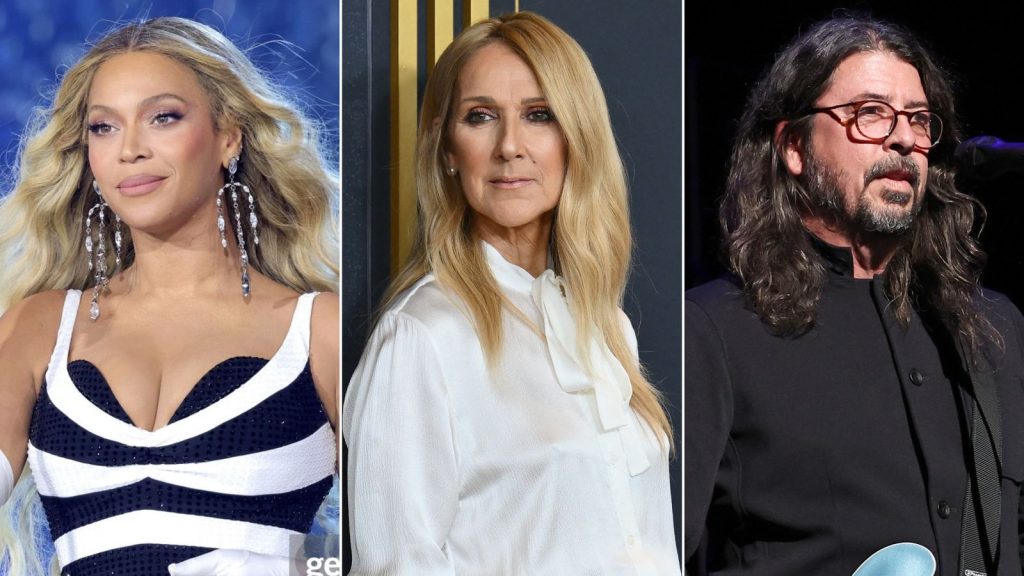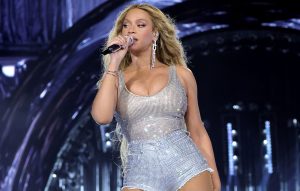“The Legal Tug-of-War: Can Beyoncé, Celine Dion, and Foo Fighters Prevent Trump from Using Their Music?”
3 min read

The use of music in political campaigns can often spark controversy, particularly when the artists involved do not support the candidate in question. Recently, several high-profile musicians have found themselves at odds with former President Donald Trump’s campaign over the unauthorized use of their songs. This ongoing dispute highlights the complex interplay between music licensing, political endorsements, and intellectual property rights.
The latest twist in this saga emerged after President Joe Biden exited the presidential race, endorsing Kamala Harris as the Democratic nominee. Almost immediately, It was reported that Beyonce approved the use of her song “Freedom” for Harris’s campaign. However, this choice became contentious when the Trump campaign began using the same Beyoncé track in a social media video and at a rally. Despite Beyoncé’s clear support for Biden-Harris in 2020, her music was featured prominently at a Trump event held on July 31 at New Holland Arena in Harrisburg, Pennsylvania. Following this, Beyoncé’s representatives reportedly threatened legal action, leading to the removal of the video from Trump’s campaign page.

Trump’s campaign spokesperson, Steven Cheung, defended the use of “Freedom” by stating it was intended to mock Democrats and their alleged stance on freedom. The incident underscores the contentious nature of music licensing in political contexts, where the intent behind a song’s use can be as significant as obtaining the necessary permissions.
Music licensing is a complicated and often costly process. Campaigns, like movie studios and brands, must secure licenses to legally use songs, whether in live events, online platforms, or promotional materials. Heidy Vaquerano, a music law expert at Fox Rothschild, emphasizes that a proper license is required for any music use, but this does not always preclude disputes. Even with a license, artists might object if their music is used in ways that imply endorsement or align with their personal beliefs.

The Foo Fighters recently experienced a similar situation. Their song “My Hero” was used at a Trump rally in Arizona without their permission. The band’s representative stated that they were neither asked for consent nor would they have granted it if requested. The band clarified that any royalties from the unauthorized use would be donated to the Harris/Walz campaign. Despite Trump’s campaign claiming they had a license, the Foo Fighters firmly denied granting permission.
Legal protections for artists extend beyond just licensing agreements. Political campaigns could face legal repercussions if their use of music implies endorsement by the artist, which can infringe on publicity rights or constitute a false endorsement. For instance, Trump’s 2020 and 2024 campaigns faced backlash from numerous artists, including Rihanna, Phil Collins, Neil Young, and others, who publicly denounced the use of their music.
Celine Dion recently joined this list. Her song “My Heart Will Go On” was played at a Trump rally in Bozeman, Montana, accompanied by a video of Dion performing. Dion’s team swiftly responded, stating that the use was unauthorized and did not reflect her support for Trump.

Further escalating the issue, the estate of Isaac Hayes filed a copyright infringement lawsuit against the Trump campaign for using his music at rallies. Hayes’ estate contends that Trump’s campaign did not obtain a valid public performance license for the song “Hold On, I’m Comin’,” which was featured in a recent rally post on Truth Social. The estate is seeking compensatory damages for this unauthorized use and has secured an emergency court hearing.
These disputes illustrate the intricate nature of music rights and political campaigns. Musicians and their representatives are increasingly vigilant about unauthorized uses of their work, and legal actions are becoming more common as a means of protecting their intellectual property and personal brand. As the 2024 election cycle continues, it is likely that more artists will find themselves at the center of similar controversies, raising questions about the boundaries of music licensing in political contexts.